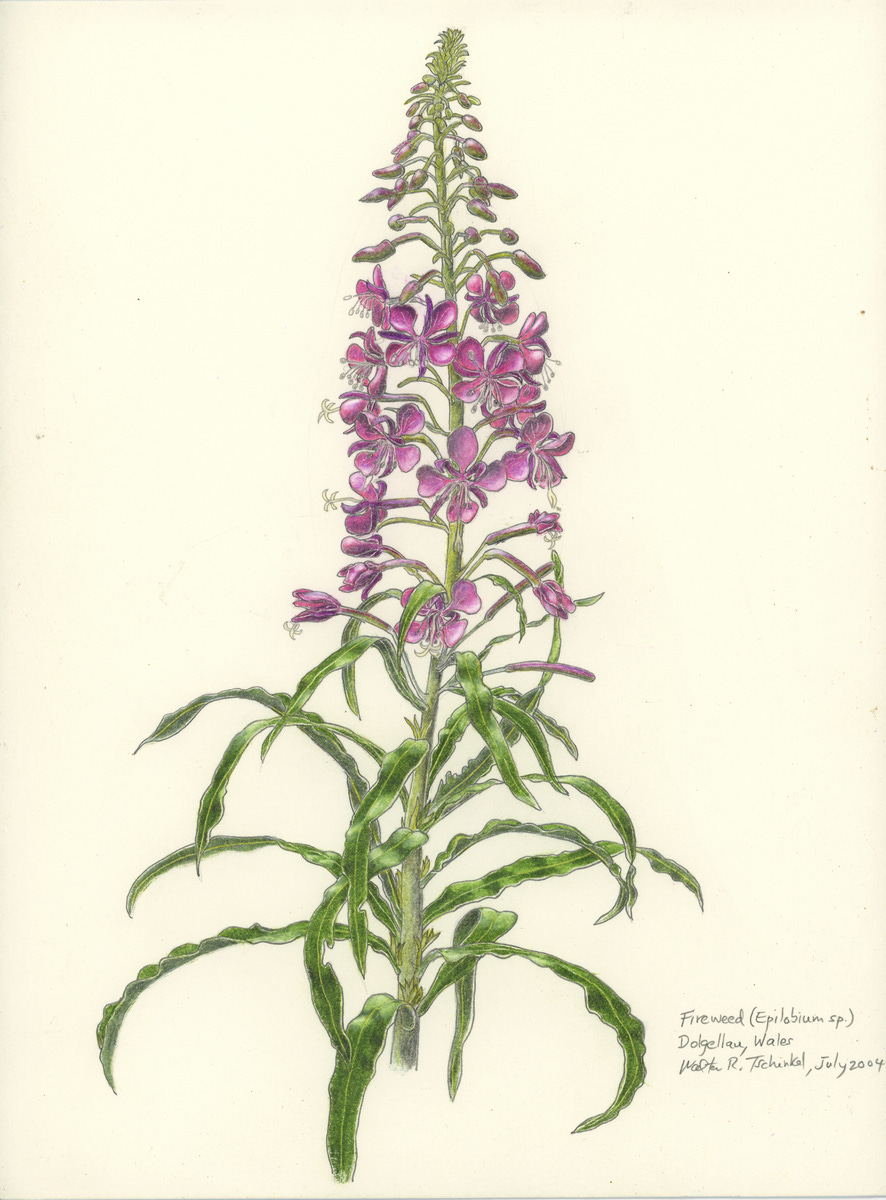Fireweed is a gift of beauty to northern latitudes, where its tall, upright flowering stalks stand in dense crowds in disturbed places, covering in heliotrope the insult to the landscape that made a place for them, be it fire or human disturbance. It is a classic pioneer species, fast to colonize disturbance, growing rapidly, producing copious, fluffy wind-dispersed seeds early and dying as the site grows back into a shady forest. But in the soil, its seeds lie dormant for years, ready to burst forth after the next fire roasts the forest, or the next road cut lets sunlight fall on the soil. In the Second World War, it became known as bombweed because it quickly colonized bomb craters.
Roadsides and open fields from Alaska to northern Europe are pleasing to the eye largely because of fireweed. And so it was in Wales in 2004 when Vicki, Erika and I vacationed near the town of Dolgellau. Dolgellau is described as " a market town in Gwynedd, north-west Wales, lying on the River Wnion, a tributary of the River Mawddach." As English speakers, this kind of stuff presented a pronunciation challenge, one that we valiantly tried to meet by asking various shopkeepers, B&B hosts and assorted Welshians how to say, for example, "Wnion" or "Dolgellau." The results were dismaying, for no two people, Walish or not, seemed to pronounce these words the same way.
So here is what the internet has to offer. The first web site claims that Dolgellau is pronounce "Doll Geth Ley", but the second says it is " Doll-GESH-lay." A more authoritative site (http://quixoticquisling.com/2008/09/dolgellau/), apparently hosted by a genuine Walish person has this to say: "To pronounce Dol-gell-au correctly, the last syllable rhymes with “eye” and the combination “ll” signifies a voiceless fricative sound. Put your tongue as if you’d make an “l” sound then blow air instead. This sound is not unique to Welsh. Several other languages feature the sound. If you can already speak Navaho, Greenlandic or Zulu – or a combination of them – you’ll have no problem with it." Really helpful, eh?.
But in 2004 in Wales, we had no access to such help, and as the advice of the locals simply confused us, we sort of averaged all the advice, and having decided what English word it seemed most similar to, it became known to us thereafter as "Dog Leash." Sometimes I suspect that is exactly what the Welsh have done, because nobody really knows how to pronounce these words with their odd spelling, so everybody settles on what they are most comfortable with. This way, as they motor along two-lane country roads that are not even wide enough for one car, they need not be distracted by how to pronounce the name on the road sign ahead, thereby avoiding mowing down the roadside fireweed. It worked for us, and it seems to work for them.






Great story! Thanks!
Impressive & insightful, as ever.